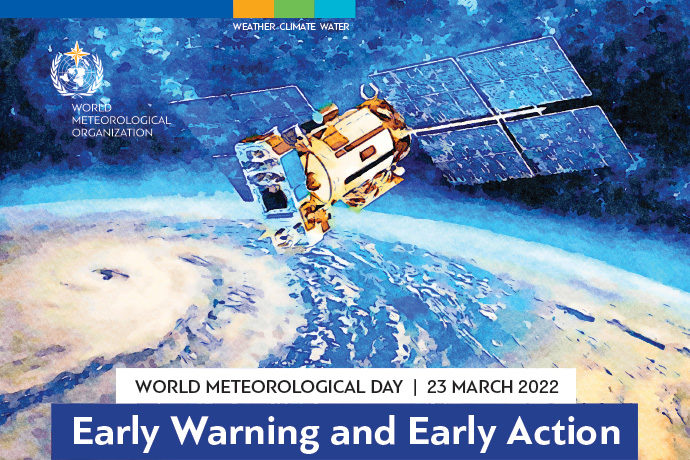The ECMWF Director of Forecasts Florian Pappenberger considers how ECMWF’s global numerical weather predictions help to provide early warnings and early actions on the occasion of the World Meteorological Day 2022.

Every 23rd of March, The World Meteorological Organization (WMO) commemorates the coming into force of the Convention establishing the World Meteorological Organization in 1950. Year 2022 is held under the theme Early Warning and Early Action, and spotlights the vital importance of Hydrometeorological and Climate Information for Disaster Risk Reduction.
WMO points out that forecasts of what the weather will be in the future are not enough. Florian Pappenberger, director of Forecasts at ECMWF and member of the CAFE research team, states that we also need information on the likely impacts of the weather, and the actions we need to take to reduce damage and keep ourselves safe.
At ECMWF, researchers translate forecasts that cover the entire Earth system into warnings. These forecasts are produced for the medium range (3-10 days), extended range (up to 46 days) and the long range (up to 13 months). Forecasts should reflect the range of future weather possibilities. The most useful approach is to be able to see the information on what the most likely scenarios are, and what the worst case scenario could be. ECMWF has produced several scenarios for the future in their forecasts during the last 30 years.
Extreme weather events
When looking at any global forecast, there is always likely to be an extreme somewhere. Not all these forecasts are associated with warnings, but they have an impact on people.
Forecasts have become better and better over the last few decades and in the future will become even more precise. To make it possible, not only scientific and technological developments provided through the strategic support of Member and Co-operating States in programmes of the European Commission is needed. Also, observation and infrastructure programmes are necessary. This will support countries to generate and exchange basic observational data critical for improved weather forecasts and climate services, amongst other things.
Warnings and actions
Skilful forecasts are important, but as the theme of this World Meteorology Day highlights, they are not enough. The translation into warnings and actions is undertaken by national meteorological and hydrological services in their Member and Co-operating States, other WMO partners, commercial customers, the UN, and intergovernmental organisations.
The objective of the CAFE project is to improve weather predictions by merging expertise in different fields, as well as ensure translation to users, through the participation of government agencies and industry. Reliable sub-seasonal climate information is of great importance, allowing for early warnings and adequate mitigation strategies.
Original reference:
ECMWF forecasts help to provide early warnings and early actions (23rd March 2022)
More information:
